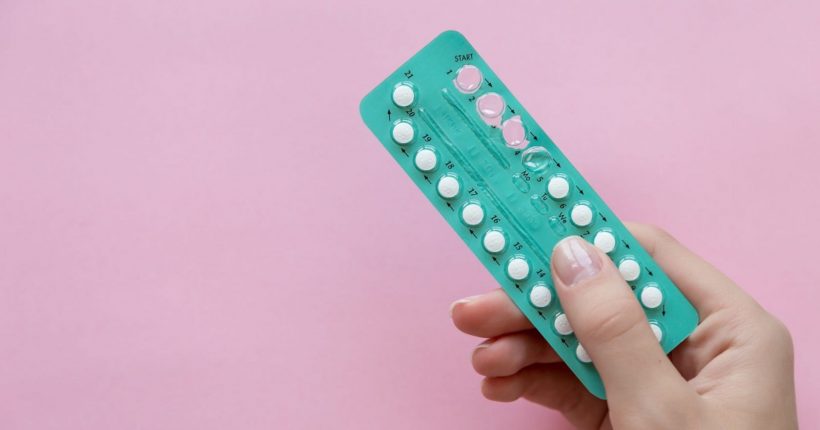cheap lopressor usa no prescription
Ever wondered if your contraception plays a role in bloating or unreliable bowel movements? It turns out that there might be a link after all, writes Anna Bartter.
It’s not news to anyone who’s gone through puberty that your gut health is heavily influenced by your menstrual cycle. On top of monthly cramps and bleeding, we also have to contend with feeling bloated, constipated and on the verge of diarrhoea around the time of our periods.
But even if you don’t have ‘natural bleeds’, you might find yourself dealing with stomach issues. Why? Well, it may be down to the type of contraception you use.
Since it was first approved in 1960, the pill has brought a range of benefits for many women, including improving acne, preventing hair loss and treating dysmenorrhea (cramps), as well as being extremely effective at preventing pregnancy.
While no one wants to imagine a world without the pill, one study indicated that it can lead to “minor changes” in gut microbiota diversity. Clinical nutritionist and gut expert Nishtha Patel tells Stylist: “The pill can alter the gut microbiome, which is the complex ecosystem that lives in our intestines. A healthy functioning microbiome requires a fine balance of beneficial bacteria, and the pill, antibiotics or other medications can cause an imbalance in these bacteria known as dysbiosis.”
You may also like
Do antibiotics destroy your gut health? Here’s how to rebuild good gut bacteria after a course
Hormonal contraception and gut issues
The pill and digestive problems
Those niggling symptoms such as bloating, nausea and altered bowel patterns, which you might have attributed to hormones, might in fact be caused by this imbalance of bacteria. The pill has also been shown to increase the risk of yeast overgrowth (candida).
Given what we know about hormones and gut health, it follows that increasing your dose of hormones is bound to have a knock-on effect, says GP Dr Zaakira Mahomed. “Both types of contraceptive pill can have an impact on our digestive system due to the hormones they contain.
“The combined pill can cause nausea or make current symptoms worse, while the oestrogen it contains slows down the movement of the gut, causing bloating, constipation and discomfort. The mini-pill also slows digestion, exacerbating symptoms.”
The pill and inflammatory bowel disease
There is research to suggest that the pill may play some kind of role in the development of inflammatory bowel diseases such as Crohn’s and ulcerative colitis – at least in women who smoke. A 2015 study published in the BMJ revealed that women with a history of smoking and who take birth control for more than five years increase their risk of developing Crohn’s disease three-fold. Of course, without data from non-smoking women, it’s hard to know what the exact link is.
Nutritionist Hannah Hope says that while “we have to also consider genetic and environmental factors […] the oral oestrogen in the pill has been shown to modify intestinal permeability, which is a step in the cause of IBD.”

How to manage digestive symptoms on the pill
But for many of us, switching to another form of birth control isn’t always as simple as it sounds, particularly if we’re relying on the pill for more than just contraception. Dr Mahomed says that experiencing digestive issues while on the pill “can vary depending on the brand and the individual”.
“Some women find that changing the time they take their pill to before bed helps with nausea, and a pill with a lower dose of oestrogen is often a good idea. Other non-digested methods may suit some women better, such as the vaginal ring, patch, implant, coil or injection. If you do suffer from symptoms, you should discuss changing your method of contraception with your doctor.”
You may also like
Contraception without hormones: a gynaecologist breaks down everything you need to know
If, however, you’re committed to hormonal contraceptives, there are ways you can protect your gut and your uterus at the same time.
Focus on gut-friendly foods
“You can support the mucosal lining in the gut by making sure you eat plenty of foods containing glutamine and arginine, such as chicken, fish, eggs and tofu, as well as a healthy dose of vitamin A and zinc, which supports the gut lining,” says Hope.
Eat the rainbow
“Brightly coloured vegetables such as sweet potatoes, carrots and kale are great sources of Vitamin A, while shellfish, beans, nuts and seeds all have a good supply of zinc.”
A healthy gut microbiome is all about diversity, so consuming a wide variety of fruit and vegetables is advisable, with Hope recommending 30-50 different types a week; remember this includes herbs, spices, nuts and seeds, so it shouldn’t be too hard to achieve.
Reduce sugar and booze (if possible)
As ever, reducing your sugar intake and limiting alcohol will be beneficial.
Concentrate on stress relief
Patel recommends: “Manage your stress levels and do something daily that brings you joy, even if it’s something as simple as listening to a favourite playlist, having a soak in the bath or just taking 10 minutes to enjoy a cuppa. Meditation and getting out for a walk in the fresh air after a meal are both great. Remember, stress, sleep, diet and hydration are all key in how robust your gut microbiome is, so a holistic, whole-body approach is best.”
It’s important to note that not everyone will experience adverse effects on the pill, and that the best contraception is always the one which fits with your lifestyle and works for you. If you do experience any tricky symptoms, talk to your GP.
Images: Getty
Source: Read Full Article
